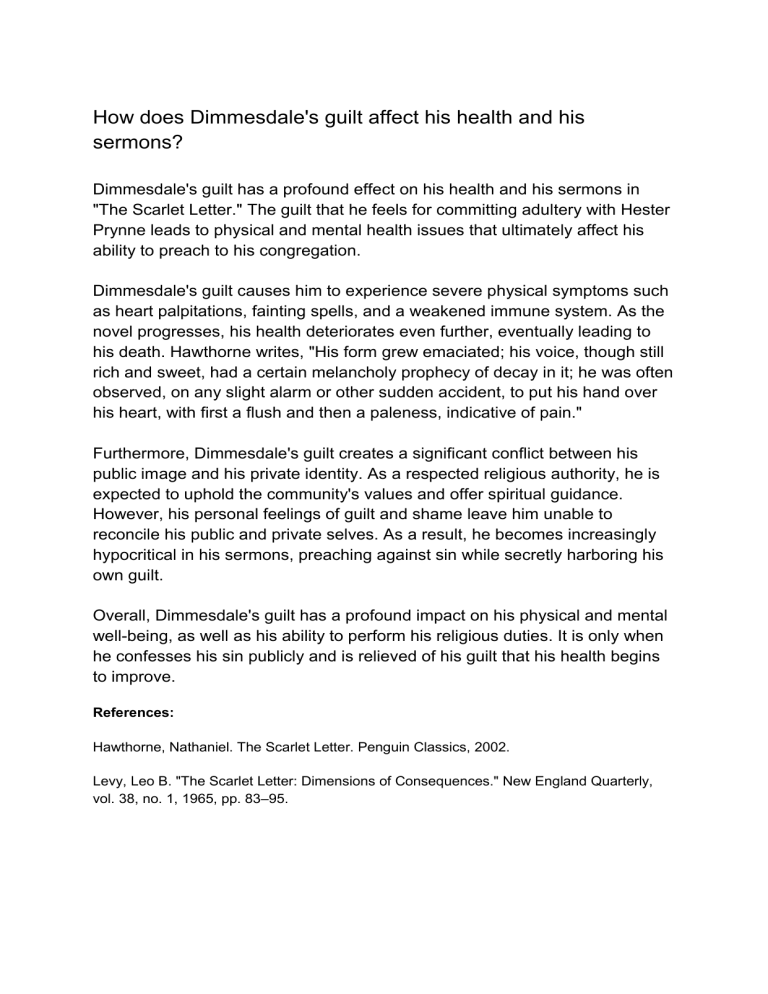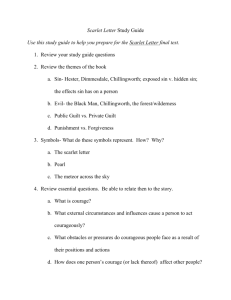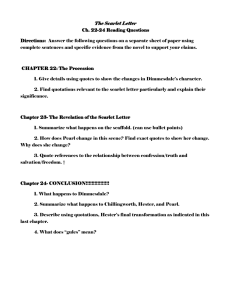
How does Dimmesdale's guilt affect his health and his sermons? Dimmesdale's guilt has a profound effect on his health and his sermons in "The Scarlet Letter." The guilt that he feels for committing adultery with Hester Prynne leads to physical and mental health issues that ultimately affect his ability to preach to his congregation. Dimmesdale's guilt causes him to experience severe physical symptoms such as heart palpitations, fainting spells, and a weakened immune system. As the novel progresses, his health deteriorates even further, eventually leading to his death. Hawthorne writes, "His form grew emaciated; his voice, though still rich and sweet, had a certain melancholy prophecy of decay in it; he was often observed, on any slight alarm or other sudden accident, to put his hand over his heart, with first a flush and then a paleness, indicative of pain." Furthermore, Dimmesdale's guilt creates a significant conflict between his public image and his private identity. As a respected religious authority, he is expected to uphold the community's values and offer spiritual guidance. However, his personal feelings of guilt and shame leave him unable to reconcile his public and private selves. As a result, he becomes increasingly hypocritical in his sermons, preaching against sin while secretly harboring his own guilt. Overall, Dimmesdale's guilt has a profound impact on his physical and mental well-being, as well as his ability to perform his religious duties. It is only when he confesses his sin publicly and is relieved of his guilt that his health begins to improve. References: Hawthorne, Nathaniel. The Scarlet Letter. Penguin Classics, 2002. Levy, Leo B. "The Scarlet Letter: Dimensions of Consequences." New England Quarterly, vol. 38, no. 1, 1965, pp. 83–95.





